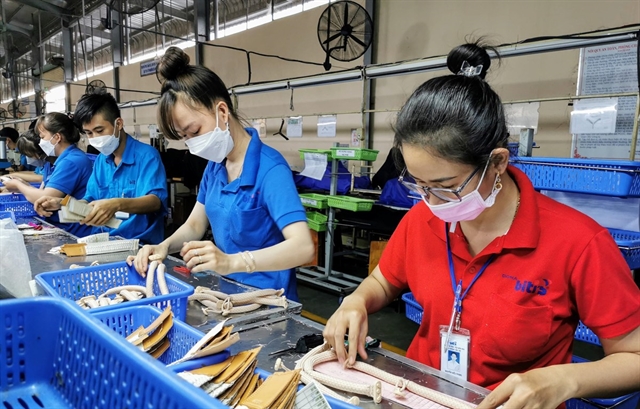[ad_1]

HÀ NỘI — Improving the business environment is among Việt Nam’s top priorities in the future, especially as the country is trying to get the economy back on track, said economists and policymakers at a conference in Hà Nội on Thursday.
Prolonged social and mobility restrictions to check the spread of COVID-19 in recent months had significantly hampered efforts to improve the country’s business environment, said Nguyễn Đình Cung, former head of the Central Institute for Economic Management (CIEM).
As reforms lost momentum there had been signs of resistance coming from the government’s ministries and offices against changes.
“We have witnessed the return of business requirements that were once removed as well as additional requirements put in place,” he said.
Dr Nguyễn Minh Thảo, head of CIEM’s business environment and competition department, said efforts to improve the country’s business environment had slowed down significantly since the end of 2019.
Thảo said too many commitments had been made on paper by the government but too few had been implemented and reviewed.
“For example, while local governments and ministries reported an increased number of administrative procedures available online in many cases they have not been able to effectively service businesses,” she said.
It has been reflected in Việt Nam’s less-than-impressive Economic Freedom score. The country ranked 17th among 40 countries in the Asia–Pacific region with 61.7 points, just 0.01 points above the world’s average.
Speaking at the conference, deputy minister of planning and investment Trần Duy Đông said the Government was fully committed to the long-term and sustainable improvement of the business environment and considered it a driving force for economic recovery and national development.
Đông said the Prime Minister’s Office in January approved the Government Decree 02/NQ-CP and authorised funding for a programme designed to speed up the process. The Government had also reiterated its priorities to boost the country’s competitive capacity.
Thảo, however, said 24 of 26 of ministry-level bodies had just set deadlines to implement reforms. Notably, the Ministry of Culture, Sport and Tourism and Vietnam Chamber of Commerce and Industry had not made public information regarding their action plan.
Similarly, just 50/ of 63 local governments had reported with the Ministry of Planning and Investment regarding their action plans while 13 others including the localities of Bà Rịa-Vũng Tàu, Bạc Liêu, Đồng Nai, Hà Tĩnh, Hòa Bình, Hưng Yên, Lai Châu, Long An, Quảng Bình, Tây Ninh, HCM City, Trà Vinh and Vĩnh Long had not.
Commenting on the slow progress, Cung stressed the importance of support measures for the business community, which has been severely battered by the pandemic and is in desperate need of streamlined and less costly services to recover.
He called on all governmental bodies and offices to double down on their effort to improve the business environment. He suggested no more technical barriers be created while local governments actively review and identify wasteful and costly administrative procedures to be removed immediately.
Cung said the effort must be concentrated to push ongoing reforms further while stomping out resistance from ministerial offices to changes. There should also not be distinctions and different treatments among domestic and international firms when it comes to administrative reforms. VNS
[ad_2]
Source link
